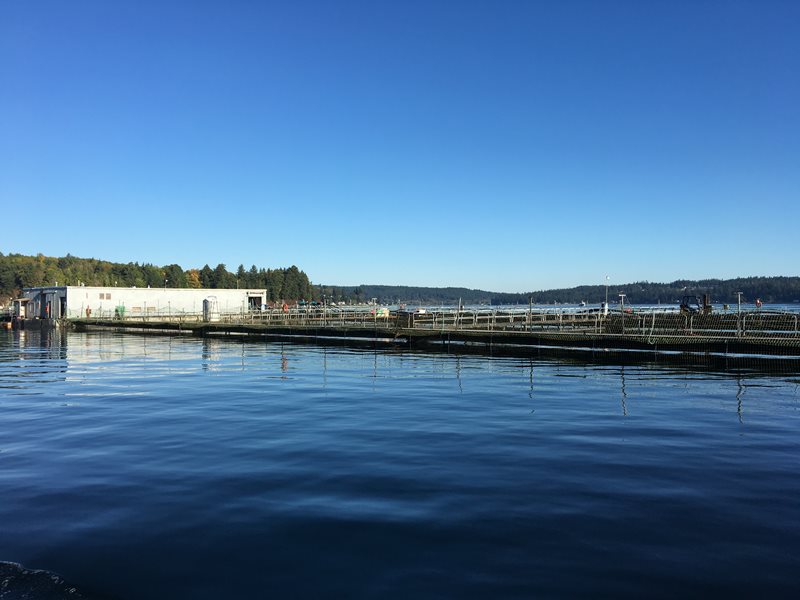After public review and feedback, the Washington Department of Ecology has revised four water quality permits to allow sterile, all-female steelhead to be raised in marine net pens, instead of Atlantic salmon.
The permit revisions are part of the multi-agency permitting process Cooke Aquaculture went through to change the type of fish it raises in four Puget Sound net pens from non-native Atlantic salmon to native steelhead, also known as rainbow trout. The facilities are located near Bainbridge Island and La Conner.
After receiving approval from the Washington Department of Fish and Wildlife to switch species, the company needed Ecology’s approval for updated water quality permits.
In response to the company’s application, Ecology drafted revised permits and took public feedback from Sept. 9 through Oct. 26, 2020, receiving 147 submissions. All documents, including Ecology’s response to comments, are at ecology.wa.gov/NetPenPermit.
While Ecology determined that switching species would not change potential impacts on water quality, the agency strengthened regulations in the permits to ensure water quality is protected. Additional requirements include:
- Clarification that any fish reared in Cooke’s net pens are prohibited from release.
- Added requirements and details on how to notify state agencies of events that could potentially lead to fish escape.
- Increased monitoring and reporting of potential fish escape during stocking and harvesting.
- Added reporting for fish feed consumption.
- Added details on how nets must be maintained.
- Added a requirement to study new technologies and propose alternatives that reduce or prevent discharge of uneaten feed or metabolic waste.
All net pens operated by Cooke are currently empty, with Atlantic salmon harvest completed in October 2020.
Additional background
Legislature banned non-native fish farming
In 2018, the Legislature approved a ban on non-native net pen fish farming; the ban goes into effect in 2022. The law does not prohibit native finfish aquaculture.
Aquatic lands leases expire in 2022
Cooke Aquaculture’s aquatic lands leases with the state Department of Natural Resources (DNR) expire in 2022. For Cooke Aquaculture to continue fish farming with native fish beyond 2022, DNR would need to renew the aquatic lands leases.
Water quality permits expire in 2024
Ecology’s revised water quality permits are consistent with the timelines of the Legislature and the Department of Natural Resources. If Cooke Aquaculture’s aquatic lands leases are not renewed in 2022, Ecology’s water quality permits give the company two years to clean up and remove the net pens.
Ecology last updated the net pen permits in July 2019 to include increased protections for water quality based on lessons learned from the 2017 net pen collapse at the Cooke Cypress Island site. To learn more about the water quality permits updated in 2019, read the July 11, 2019, news release.
State authority
- Department of Fish and Wildlife regulates ecological impacts of marine aquaculture to prevent disease and harmful effects to wild stocks.
- Department of Ecology regulates marine net pen aquaculture to protect water quality through the National Pollutant Discharge Elimination System.
- Department of Natural Resources manages the aquatic lands leases for net pens.


